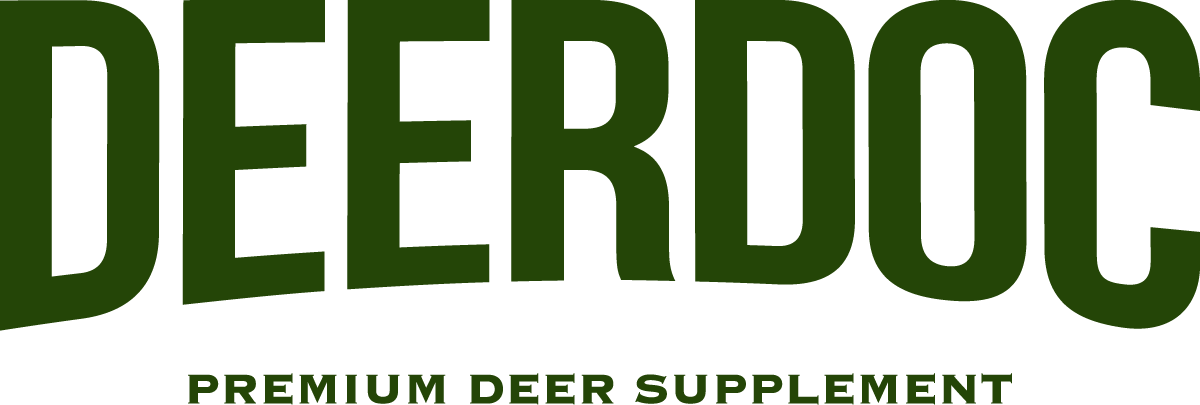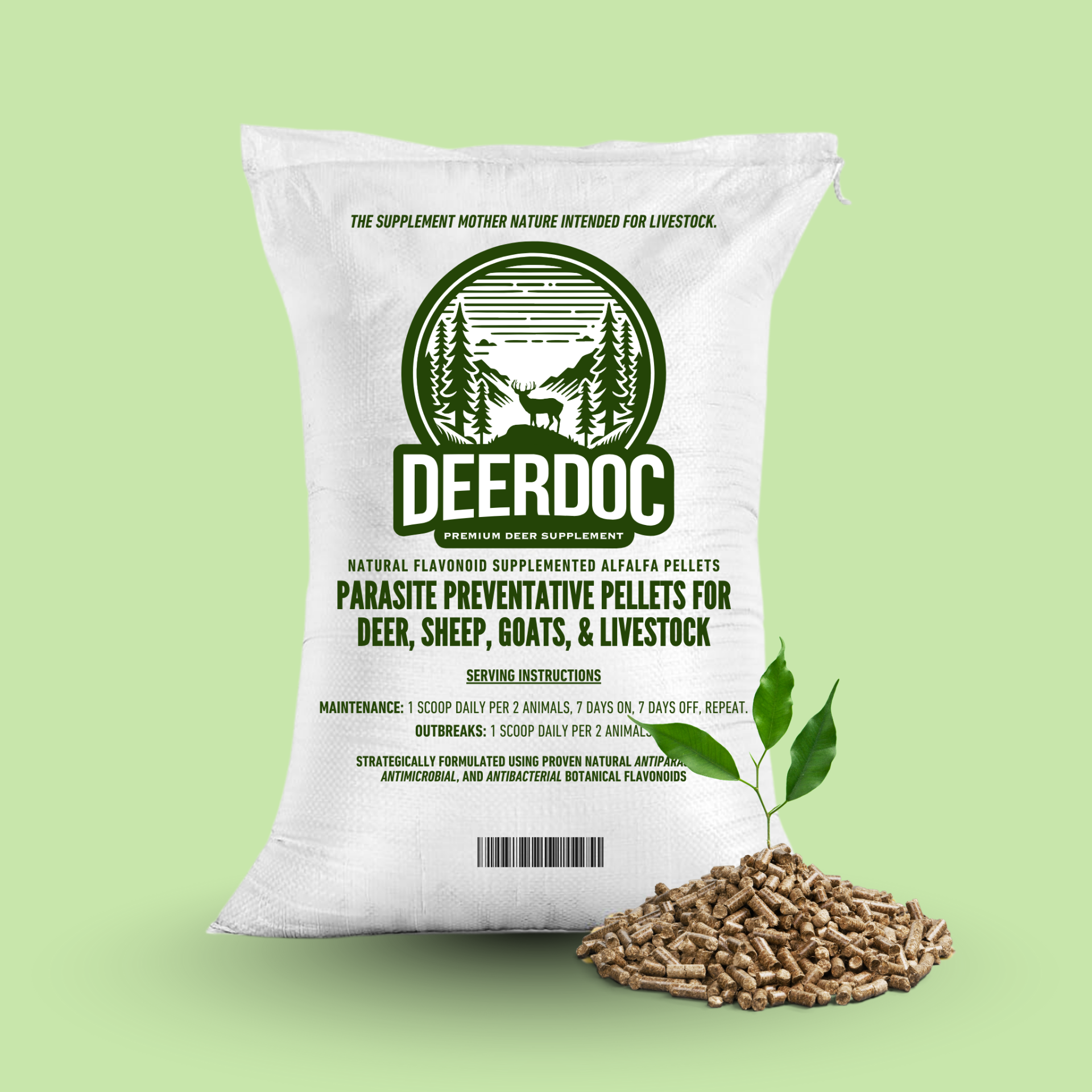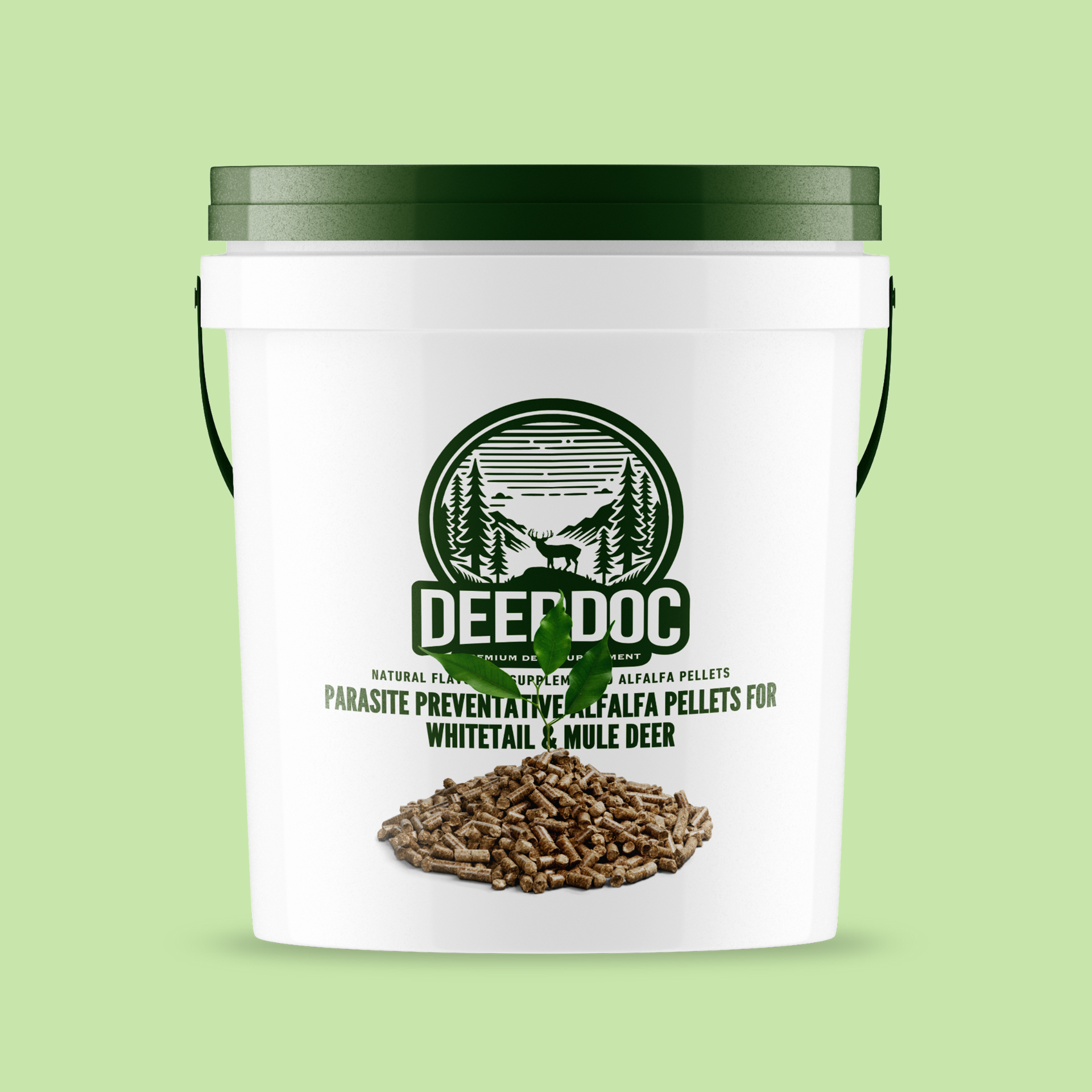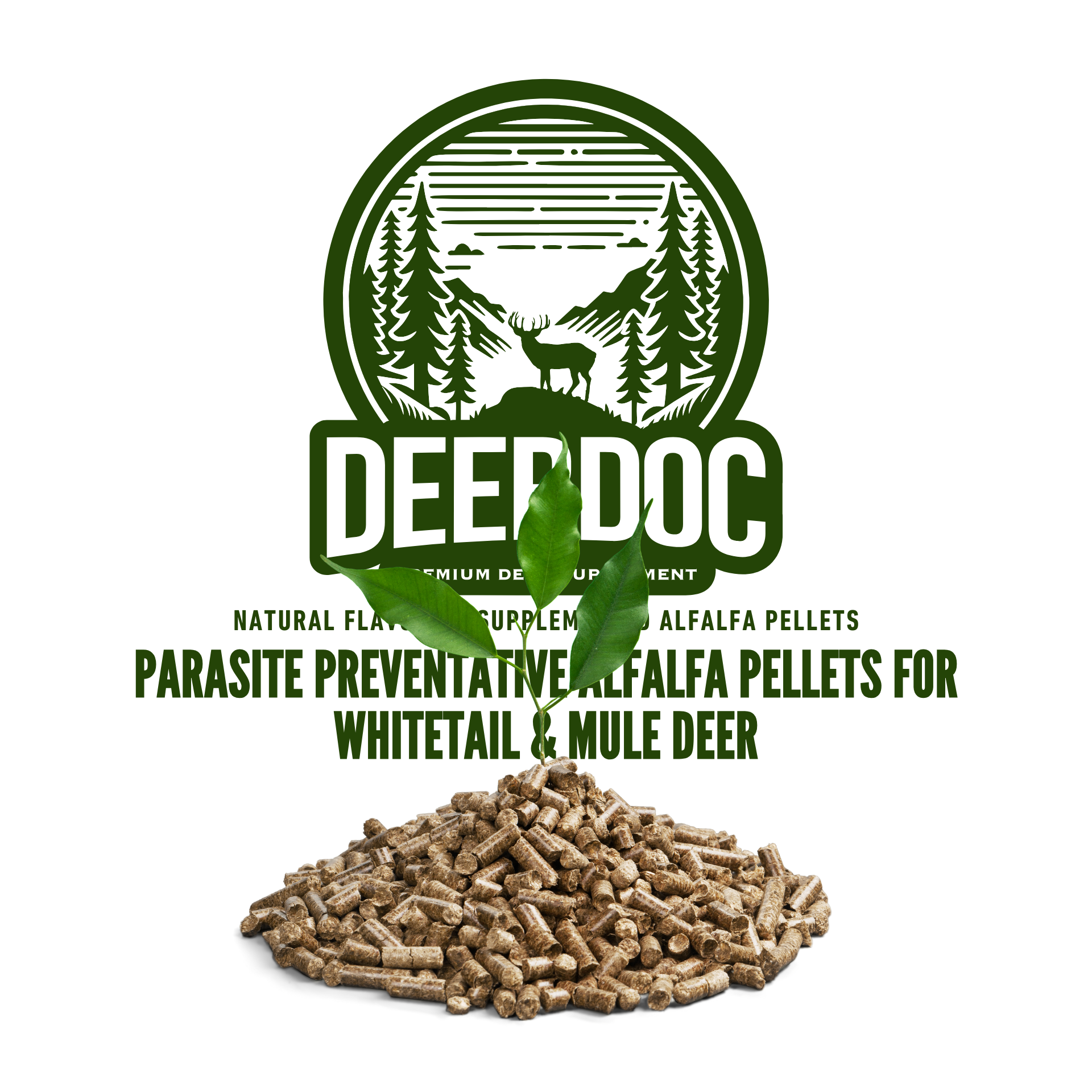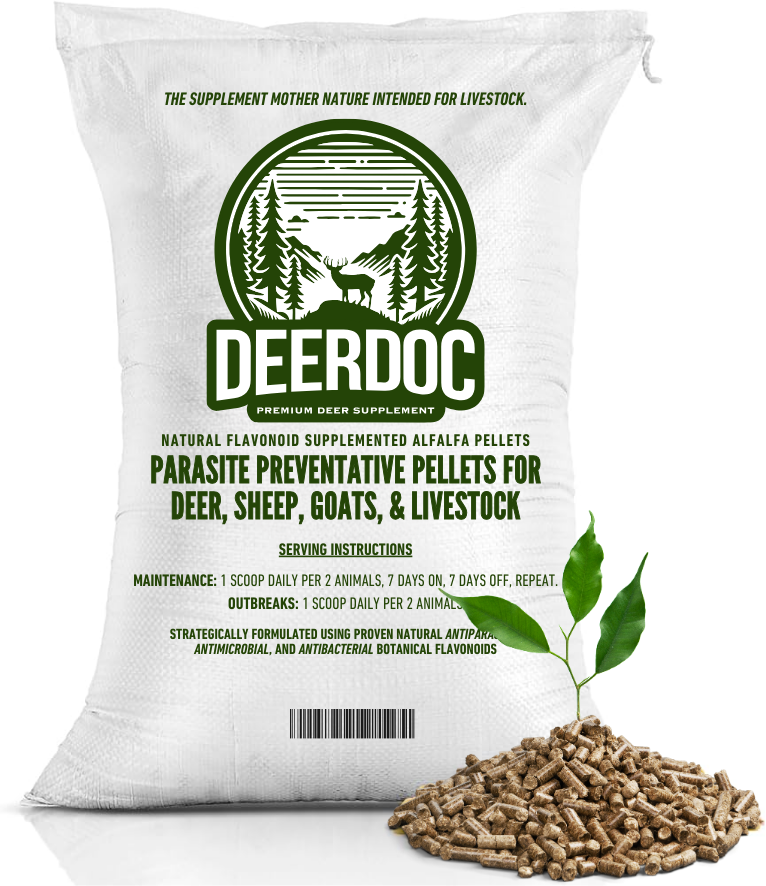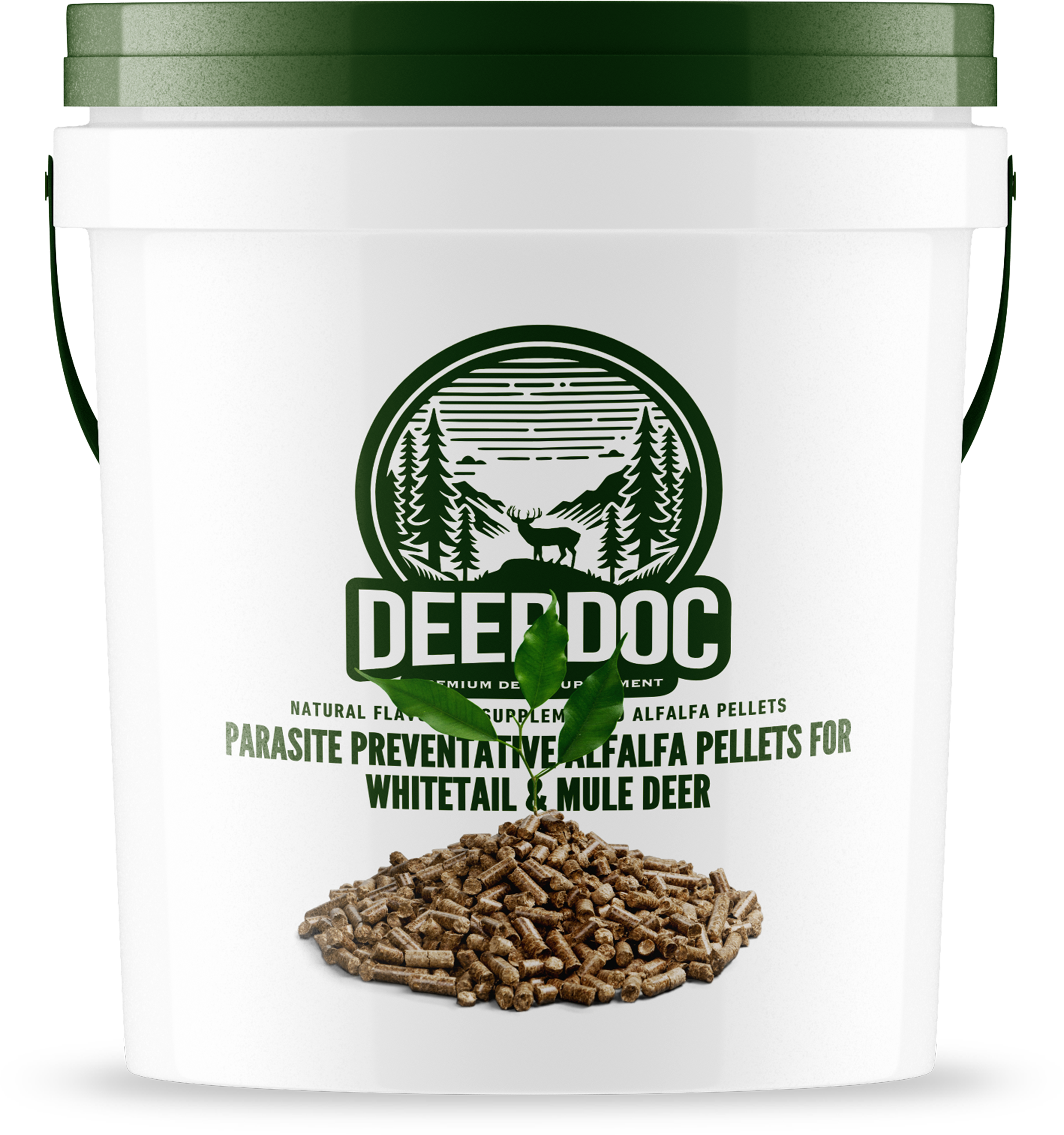As a whitetail deer farmer, you’re no stranger to the challenges of keeping your herd healthy. Parasitic infections, particularly from internal worms, can wreak havoc on your deer, leading to weight loss, reduced antler growth, and even mortality if left unchecked. Traditionally, chemical dewormers have been the go-to solution, but their drawbacks—resistance buildup, environmental concerns, and potential residue in venison—are pushing farmers like you to explore natural alternatives.
Enter flavonoids, a group of plant-based compounds that are gaining attention for their potential to support animal health, including as an alternative or complement to chemical dewormers. In this post, we’ll dive into the world of flavonoids, focusing on three powerhouse compounds—quercetin, naringenin, and apigenin—that are featured in products like DeerDoc. We’ll explore their science-backed benefits, how they can fit into your parasite management strategy, and why they’re worth considering for your herd.
What Are Flavonoids, and Why Should Deer Farmers Care?
Flavonoids are naturally occurring compounds found in plants, fruits, vegetables, and herbs. They’re part of the polyphenol family, known for their antioxidant, anti-inflammatory, and antimicrobial properties. For centuries, humans have consumed flavonoids in foods like apples, citrus fruits, and parsley, reaping their health benefits. But what’s exciting for whitetail deer farmers is that these compounds are now being studied for their potential in livestock and wildlife management, particularly for their ability to combat parasites and support overall health.
For farmers seeking alternatives to chemical dewormers, flavonoids offer a promising avenue. Parasites like Haemonchus contortus (barber pole worm) and other gastrointestinal nematodes are notorious for developing resistance to conventional treatments like ivermectin or fenbendazole. Flavonoids, with their diverse mechanisms of action, may help disrupt parasite life cycles, boost deer immune responses, and reduce reliance on synthetic chemicals. Products like DeerDoc harness these compounds to provide a natural approach to parasite control, and three flavonoids—quercetin, naringenin, and apigenin—stand out for their efficacy and versatility.
The Top 3 Flavonoids in DeerDoc: Quercetin, Naringenin, and Apigenin
Let’s take a closer look at these three flavonoids, their properties, and how they can benefit your whitetail deer herd.
1. Quercetin: The Antioxidant Powerhouse
Quercetin is a flavonol found in foods like onions, apples, and berries. It’s one of the most well-studied flavonoids, celebrated for its potent antioxidant and antimicrobial properties. For deer farmers, quercetin’s ability to combat oxidative stress and inhibit microbial activity makes it a valuable tool in parasite management.
- How It Works: Quercetin’s antimicrobial effects have been shown to target a range of pathogens, including bacteria and parasites. A study published in Molecules demonstrated that quercetin effectively inhibits the growth of Staphylococcus aureus by altering bacterial cell membrane fluidity, suggesting it could disrupt the cellular integrity of parasites as well. In the context of deer, quercetin may interfere with the development and reproduction of nematodes, reducing their impact on your herd. Additionally, its antioxidant properties help protect deer tissues from the oxidative damage caused by parasitic infections, supporting overall health.
- Benefits for Deer Farmers: Quercetin’s ability to reduce parasite loads without the risk of resistance is a game-changer. It also supports immune function, which is critical for deer under stress from parasites or environmental factors. In DeerDoc, quercetin is a key ingredient, delivering these benefits in a form that’s easy to administer to your herd.
- Practical Application: Incorporating quercetin-rich supplements like DeerDoc into your deer’s diet can help maintain gut health and reduce parasite burdens. It’s particularly useful during high-risk seasons, like spring and summer, when parasite loads peak due to warm, moist conditions.
2. Naringenin: The Synergistic Supporter
Naringenin, a flavanone abundant in citrus fruits like grapefruit and oranges, is another star in DeerDoc’s formulation. While it may not have the same standalone potency as quercetin, naringenin shines in its ability to work synergistically with other flavonoids, amplifying their effects.
- How It Works: Research in Scientific Reports highlights naringenin’s role in enhancing the antioxidant activity of mixtures when combined with quercetin. This synergy can boost the overall efficacy of a supplement like DeerDoc, making it more effective against parasites. Naringenin also shows promise in disrupting pest behavior, as demonstrated in studies with pea aphids, where it increased mortality and reduced feeding at higher concentrations. While aphids and deer parasites differ, these findings suggest naringenin interferes with parasite feeding or reproduction in the deer’s gut.
- Benefits for Deer Farmers: Naringenin’s synergistic effects mean you’re getting more bang for your buck with a multi-flavonoid supplement. Its ability to support immune health and deter parasite activity makes it a valuable addition to your management toolkit. Plus, its presence in natural sources like citrus makes it a safe, non-toxic option for long-term use.
- Practical Application: Use naringenin-containing products like DeerDoc as part of a holistic parasite management plan. Combine it with good pasture management and rotational grazing to maximize its impact on reducing parasite loads.
3. Apigenin: The Anti-Inflammatory Ally
Apigenin, a flavone found in parsley, celery, and chamomile, rounds out the trio of top flavonoids in DeerDoc. Known for its anti-inflammatory and antimicrobial properties, apigenin is particularly valuable for addressing the inflammation and tissue damage caused by parasitic infections.
- How It Works: Apigenin has been shown to inhibit bacterial virulence factors, such as biofilm formation, which can contribute to microbial persistence in the gut. While direct studies on apigenin’s effects on deer parasites are limited, its ability to modulate inflammation and support gut health means it helps mitigate the damage caused by worms. A study in Phytochemistry Reviews noted apigenin’s role in antagonizing bacterial signaling, which could translate to disrupting parasite survival strategies.
- Benefits for Deer Farmers: Parasitic infections often cause inflammation in the deer’s digestive tract, leading to reduced nutrient absorption and poor condition. Apigenin’s anti-inflammatory effects can help soothe this damage, promoting faster recovery and better overall health. In DeerDoc, apigenin complements quercetin and naringenin, creating a well-rounded approach to parasite control.
- Practical Application: Administer apigenin-rich supplements like DeerDoc during periods of high parasite pressure or when deer show signs of stress, such as weight loss or poor coat condition. Pair with regular fecal egg counts to monitor efficacy.
Why Choose Flavonoids Over Chemical Dewormers?
Chemical dewormers have been a staple in deer farming, but their limitations are becoming harder to ignore. Parasite resistance is a growing issue, with studies showing that worms like Haemonchus contortus are increasingly unaffected by common anthelmintics. Additionally, chemical residues in venison can raise concerns for consumers, and the environmental impact of these drugs is a consideration for sustainable farming.
Flavonoids, as found in DeerDoc, offer several advantages:
- Reduced Risk of Resistance: Unlike chemical dewormers, flavonoids work through multiple mechanisms (antioxidant, antimicrobial, anti-inflammatory), making it harder for parasites to develop resistance.
- Natural and Safe: Derived from plants, flavonoids like quercetin, naringenin, and apigenin have a high safety profile, with studies showing no significant toxicity at dietary levels.
- Holistic Health Benefits: Beyond parasite control, these compounds support immune function, reduce inflammation, and protect against oxidative stress, contributing to healthier, more resilient deer.
- Consumer Appeal: As demand grows for natural, sustainably raised venison, using flavonoid-based supplements can position your farm as a leader in ethical production.
Integrating Flavonoids into Your Deer Management Plan
Ready to give flavonoids a try? Here’s how to incorporate DeerDoc and its key flavonoids into your whitetail deer farming operation:
- Start with a Baseline: Conduct fecal egg counts to assess your herd’s parasite load. This will help you gauge the severity of the issue and track the effectiveness of flavonoid supplementation.
- Introduce DeerDoc Gradually: Follow the manufacturer’s guidelines for administering DeerDoc. Typically, it can be mixed into feed or provided as a supplement. Start with a small group of deer to monitor their response.
- Combine with Best Practices: Flavonoids work best as part of an integrated parasite management (IPM) strategy. Rotate pastures, maintain clean water sources, and avoid overstocking to reduce parasite transmission.
- Monitor and Adjust: Regularly check your deer’s health through body condition scoring, weight tracking, and fecal exams. Adjust the dosage or frequency of DeerDoc as needed, in consultation with a veterinarian or deer health specialist.
- Educate Yourself: Stay informed about the latest research on flavonoids and parasite control. Resources like the Journal of Agricultural and Food Chemistry and Phytochemistry Reviews often publish studies on flavonoids’ applications in animal health.
Conclusion: A Natural Path Forward
For whitetail deer farmers, the shift toward natural parasite management is both a necessity and an opportunity. Flavonoids like quercetin, naringenin, and apigenin, as found in DeerDoc, offer a science-backed, sustainable alternative to chemical dewormers. By targeting parasites through multiple mechanisms, supporting immune health, and reducing environmental impact, these compounds can help you maintain a thriving herd. Start small, monitor your results, and join the growing number of farmers embracing flavonoids as part of a holistic approach to deer health.
Have questions about using DeerDoc or integrating flavonoids into your farm? Reach out to our team or connect with other farmers in online communities like the National Deer Association forums. Here’s to healthier deer and a brighter future for your farm!


